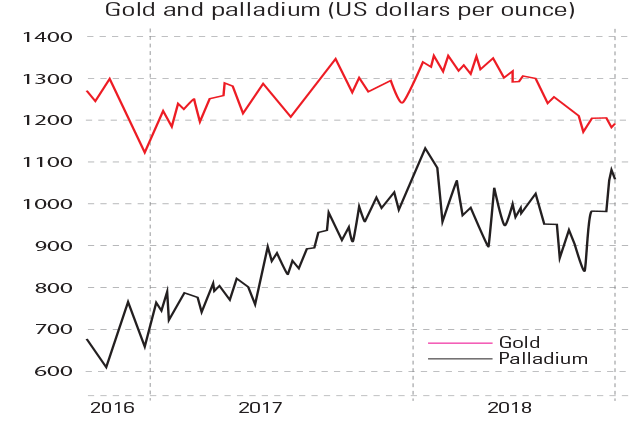
The price of palladium has had an impressive climb of nearly 30% over the past six weeks. The shiny metal “could become more valuable than gold for the first time in 16 years”, says Myra P. Saefong in Barron’s. Futures prices for palladium have jumped to $1,072 an ounce, while gold costs $1,188.
Palladium is used in catalytic converters in petrol-powered vehicles. Its sister metal platinum is more commonly used in catalytic converters for diesel engines. But demand for diesel cars has slipped in recent years owing to concern over pollution and the Volkswagen emissions scandal of 2015. Automotive demand for palladium, however, is expected to rise to a record high of 8.6 million ounces this year.
Viewpoint
We usually pay for what we consume. Yet this principle doesn’t apply to flight tickets. If it did, they would be priced according to passengers’ weight to reflect the space they take up, the burden they place on the plane, and the aviation fuel they consequently burn. It seems especially odd not to explore this idea when we pay for food, luggage and extra legroom already. These reflect various costs for the airline, but the biggest cost, transporting the human body, is not taken into account. Yet it’s hardly an outlandish idea. People are already expected to take a degree of responsibility for their own body. In private health insurance those who choose to live a lifestyle that poses risks to their health pay higher premiums. And the technology is there. Software can gauge people’s approximate weight based on their shoe and clothing purchases; Airbus holds a patent for a plane seat that can be adjusted for width.
Miriam Meckel, WirtschaftsWoche